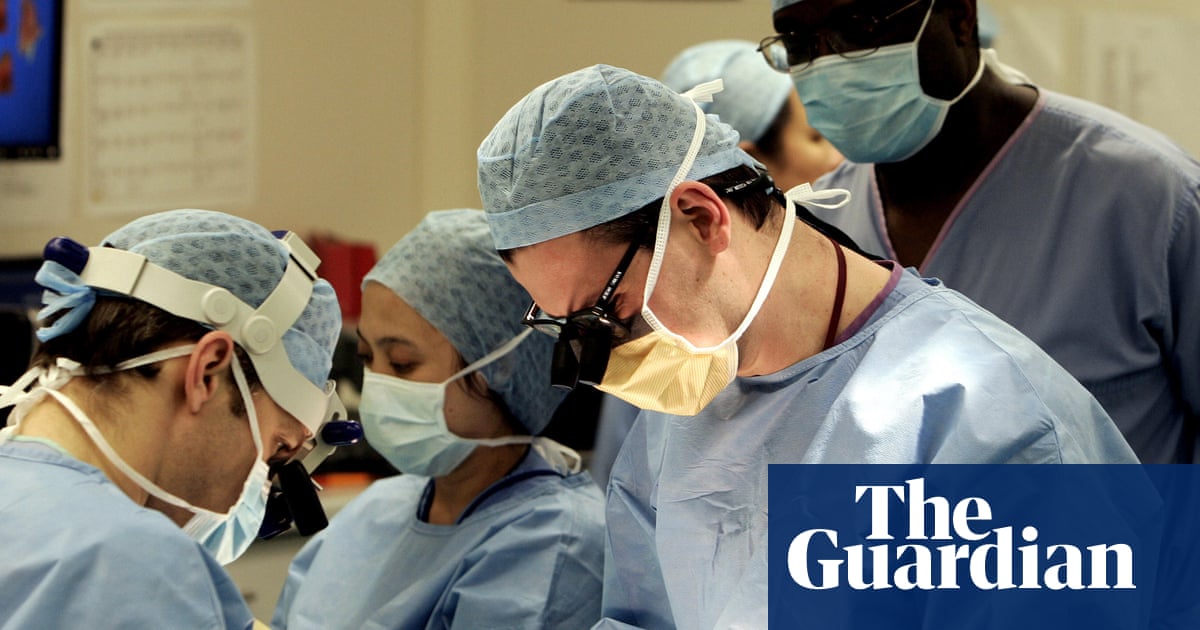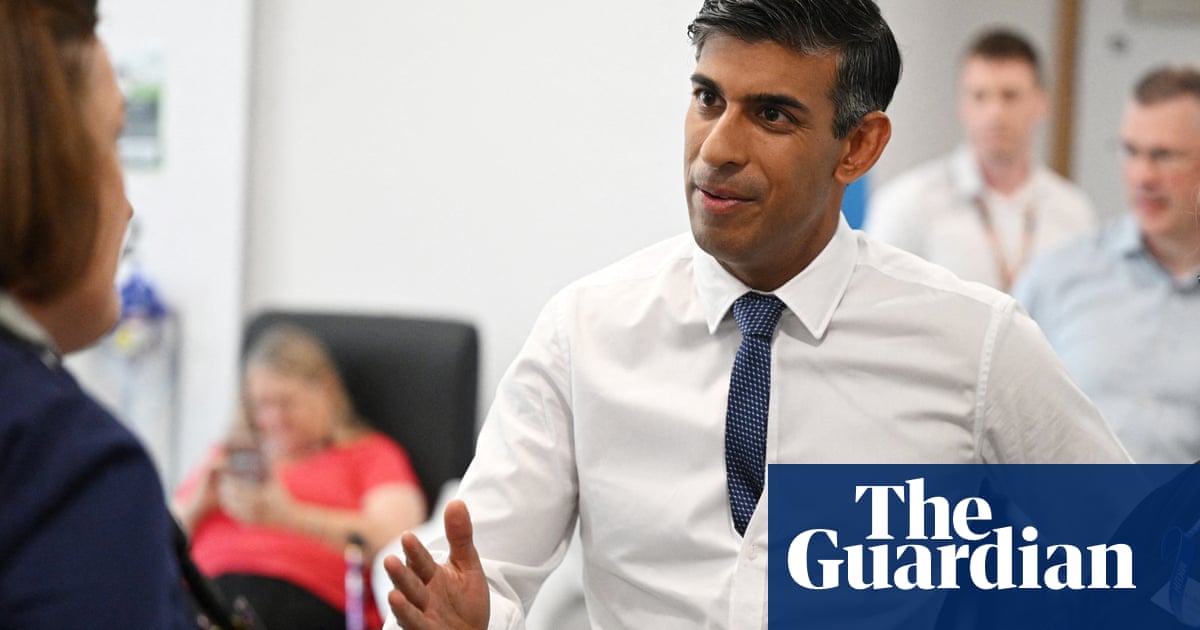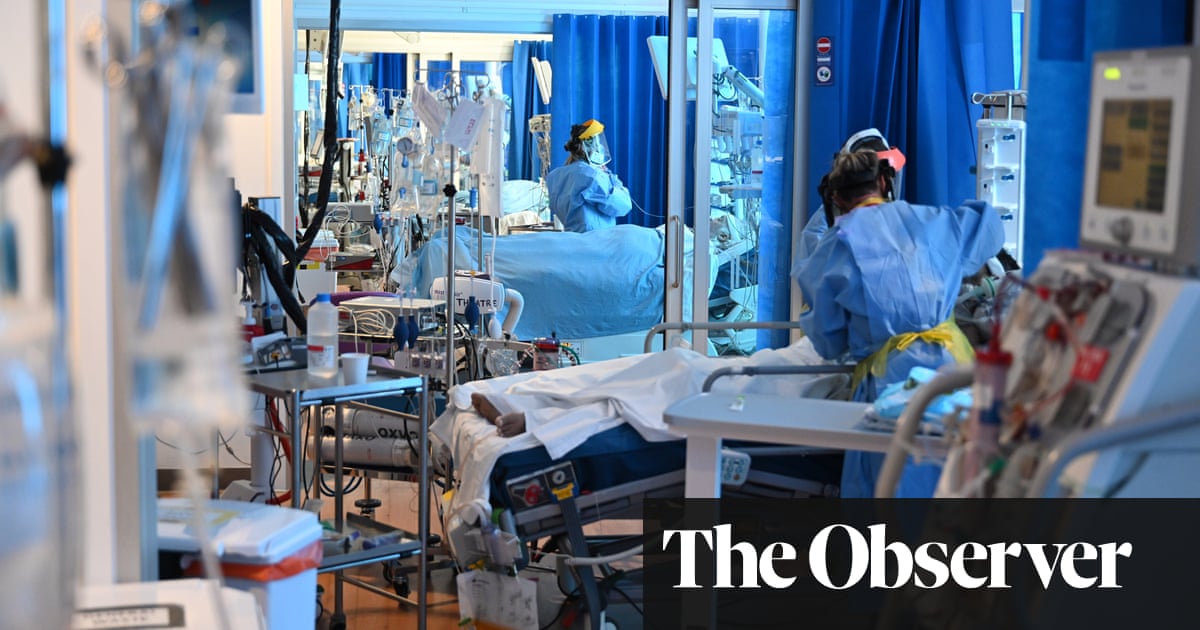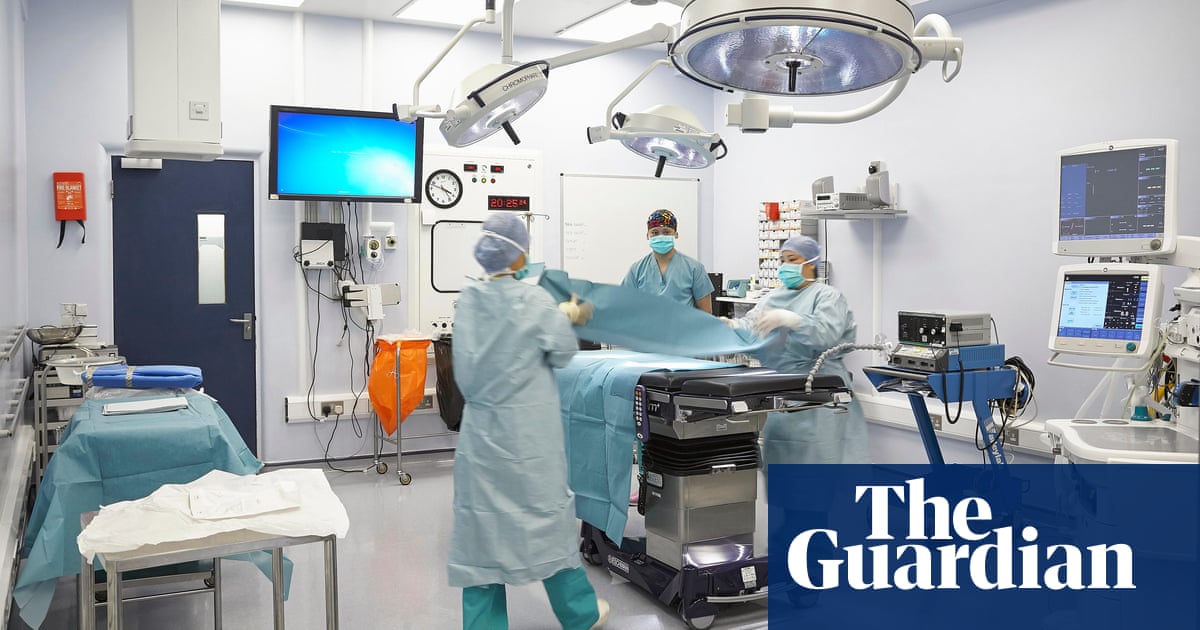
Hospitals are putting on extra surgery sessions in the evenings and at weekends to tackle the NHS’s spiralling waiting list and cut waiting times for patients.
Health trusts in England are taking the unusual step after a rise in people waiting for cancer, heart and other treatment – and especially those forced to wait more than a year – because of the pandemic.
Doctors, surgeons, health charities and hospital bosses are concerned that unusually long delays in accessing care could lead to patients’ conditions worsening or becoming inoperable. NHS Providers, which represents hospitals, fears sorting out the backlog could take up to five years.
Four trusts spanning 10 acute and specialist hospitals in west and north-west London have joined forces to treat each other’s patients in a move to tackle the huge numbers seeking care.
Figures collated by the trusts and shared with the Guardian show how dramatically waiting lists have increased across that area, as they have across England as a whole, as a result of the widespread suspension of normal NHS care over the last year.
The number of patients at the four trusts waiting at least a year from their referral until they are treated has grown from just 20 pre-pandemic to 5,737.
Between January last year and the same month this year the proportion of people with cancer receiving their first treatment from Imperial College Healthcare NHS trust within 62 days of being urgently referred by their GP fell from 82% to 73.8%. The NHS constitution says that 85% of such care, such as surgery or chemotherapy, should begin within the specified 62 days.
Similarly, until the pandemic, only 0.7% of patients at Imperial were not getting a diagnostic test such as an X-ray or CT or MRI scan within six weeks. Trusts are required to ensure no more than 1% of patients miss out on a test in that time. But that has now escalated to more than 20%.
“Trust leaders are extremely concerned with the size of waiting lists, not just for operations and diagnostic testing but for all types of care including mental health services,” said Saffron Cordery, the deputy chief executive of NHS Providers.
“Across hospitals, ambulance, community and mental health sectors, trusts are innovating and adapting their ways of working to meet demand. Some trusts are expanding their hours – putting on extra sessions in the evening and weekends – to make sure that high priority patients are seen as quickly as possible to reduce the risk of patient harm due to delays. The workforce are going above and beyond to deliver.”
This month the main hospitals in Bath, Swindon and Salisbury began working together to perform oral, ear, nose and throat surgery on certain weekends on more than 400 children who have been waiting up to 74 weeks for surgery. The scheme will have a huge impact on waiting times, Cara Charles-Banks, the chief executive of the Royal United Hospitals NHS trust in Bath, told the Heath Service Journal.
The NHS trust covering the Isle of Wight has already begun performing endoscopies and eye surgery at weekends and on Saturday will start doing hip and knee replacements too. It plans to run weekend sessions until the end of March 2022 to try to ensure the total number of people who have been waiting a long time for elective care, diagnostic tests or an outpatient appointment, which it fears could hit 1,400 without action, is kept to about 700.
Dr Steve Parker, the trust’s medical director, said: “We face a significant challenge but we have a clear plan to help us make sure that people get the treatment they need as quickly as possible.
“We’ve created extra diagnostic capacity and started operating lists at the weekend and into the evening. We’ve worked in this way before but ever on this scale or in such a sustained way.”
University Hospitals Dorset trust, which runs hospitals in Bournemouth, Poole and Christchurch, is taking a different approach. It is taking over one floor of a shopping centre in Bournemouth to set up a “health pop-up village” the size of half a football pitch in what is believed to be the first such initiative in the NHS.
It will invite large numbers of people on its waiting list to be assessed by doctors and nurses who specialise in their medical condition. It will then decide who can be safely cared for by their GP, who needs a diagnostic test and who should have surgery.
“We think it’s unique. It’s based on the vaccination programme – dealing with large numbers of people in the same place at the same time. Our consultants are quite excited about it. They’ve got a lot of people on the waiting list who’ve been waiting for 12 months up to two years,” said Mark Mould, the trust’s chief operating officer.
Imperial College Healthcare NHS trust is putting on extra sessions of endoscopy – a procedure used to diagnose stomach cancer and other conditions – and other diagnostic tests, although it is ensuring that staff, many exhausted by the pandemic, get a proper rest.
It is restarting 14 “fast-track surgical hubs” – both day-case and overnight stay operating theatres at various hospitals in the area, which each perform at least one of 29 different types of surgery. That should ensure shorter waits for patients. A spokesperson said: “Evidence has demonstrated improved quality and efficiency if a surgical team undertakes high numbers of these procedures.”












